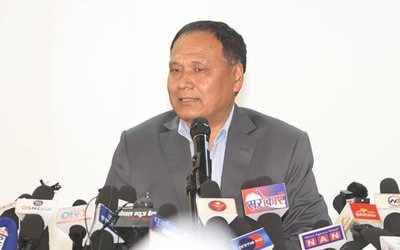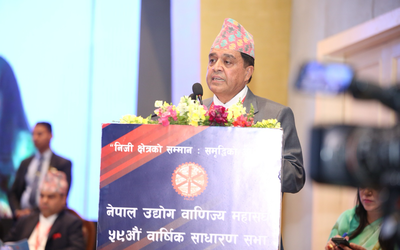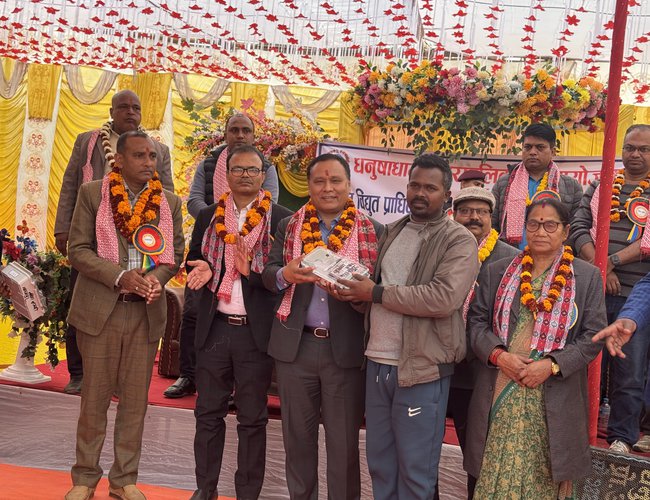
Dhanushadham in Dhanusha district has achieved the status of being an electricity theft-free municipality. This accomplishment was made possible through the joint efforts of Dhanushadham Municipality and the Nepal Electricity Authority (NEA). The declaration of Dhanushadham as an electricity theft-free zone was announced by
NEA’s Managing Director Kulman Ghising and Municipal Chief Baleshwar Mandal during a program held in Dhanushadham on Saturday. As part of this initiative, free electricity meters were distributed to households in the municipality that are economically disadvantaged. Electricity theft, which includes unauthorized connections, tampering with
meters, or any other form of illegal electricity usage, is a serious offense that results in financial losses. The successful implementation of this project in Dhanushadham serves as a model for promoting legal and safe electricity consumption practices.
The authority is distributing free electricity meters to disadvantaged households to increase access to electricity and prevent unauthorized use. The authority has distribution centers nationwide where they provide free meters and connect electricity for the poor.
The underprivileged will receive a single-phase energy meter and MCB box with a 5-30 amp capacity at no cost. There is no service fee for meter connection. Executive Ghising mentioned that Dhanushadham is striving to become a municipality free of electricity theft through its own efforts.
He emphasized that controlling electricity theft is a top priority for the authority as it is a social issue. Ghising also highlighted that the final phase of electrification is underway, extending electricity to mountainous regions, the Madhesh area, Karnali, and far-western slums to provide power to residents currently living without it.
Under the Uzyal Abhiyan initiative, our goal is to boost electricity consumption in the country by improving the reliability and quality of electricity supply in areas where it is already available. We are also prioritizing efforts to bring electricity to remote areas that currently lack access. Despite challenges such as unpaid salaries for employees, we are committed to providing electricity to households," Ghising explained.
He emphasized the importance of increasing production and productivity in the Terai region, which serves as Nepal's food basket, by electrifying irrigation systems. Collaboration with local authorities has been key in advancing this initiative.
Ghising highlighted ongoing projects with an investment of approximately 40 billion rupees aimed at expanding and enhancing infrastructure for transmission and distribution. These efforts are focused on ensuring sufficient, reliable, and high-quality electricity supply in the Madhesh province, which holds significant potential for growth in the agricultural and industrial sectors.
The municipal head highlighted the progress made in irrigation and household electrification, suggesting the need for subsidies to promote electric stoves over cooking gas. A play was performed during the event to emphasize the social impact of electricity theft.
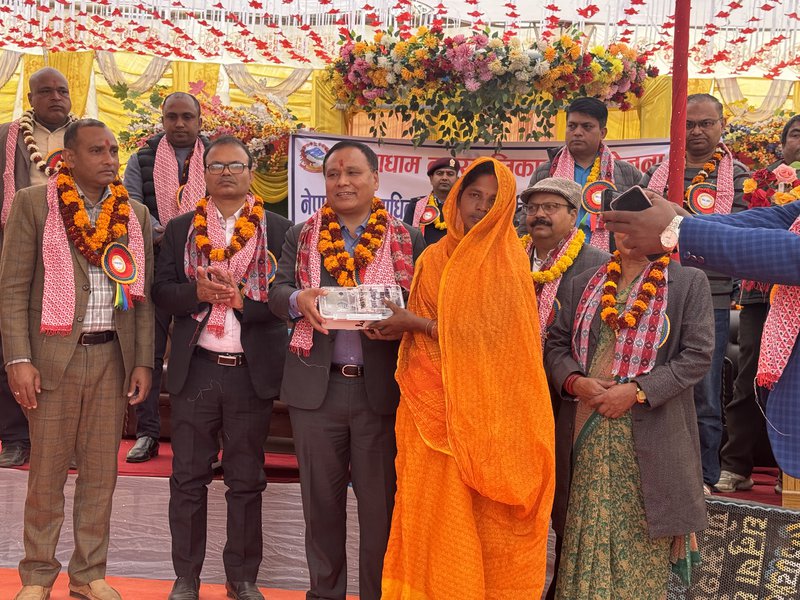
In the Madhesh province, the electricity leakage towards distribution stands at 14.20 percent in the current fiscal year 2081-82. The target for this year is to reduce electricity leakage in the province to 11.9 percent.
Efforts are being made to control non-technical leakages through campaigns targeting theft prevention, tax collection enforcement, and strict actions against meter tampering. The authority is also promoting meter installations and monitoring customers without meter readings.
Each distribution center has been assigned a leakage control target, with activities being carried out accordingly. The authority successfully reduced system electricity leakage to approximately 12.73 percent last year, down from 25.78 percent eight years ago.
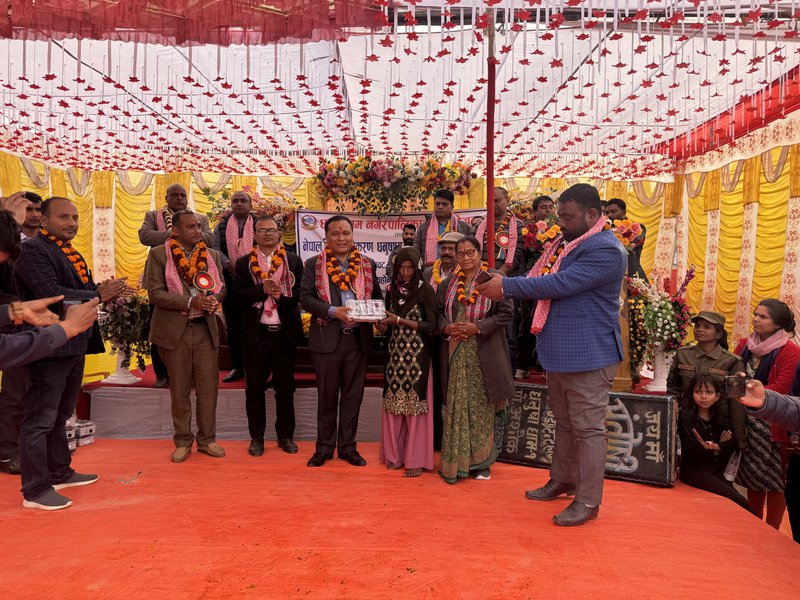
- Korean Embassy Hosts FRIENDS OF KOREA 2025 Event in Kathmandu
- Apr 19, 2025
- Weather Forecast: Partly To Generally Cloudy With Rain And Thunder Acrosss Nepal
- Apr 19, 2025
- Minister Dahal Directed To Complete The Dannune Portion Of Road Before Monsoon
- Apr 18, 2025
- Kanchenjunga Diamond Festival Being Celebrated From Today To Mark The 70th Anniversary Of The First Successful Ascent
- Apr 18, 2025
- RPP To Hold Protest In Restricted Areas Of Kathmandu On April 20
- Apr 18, 2025


